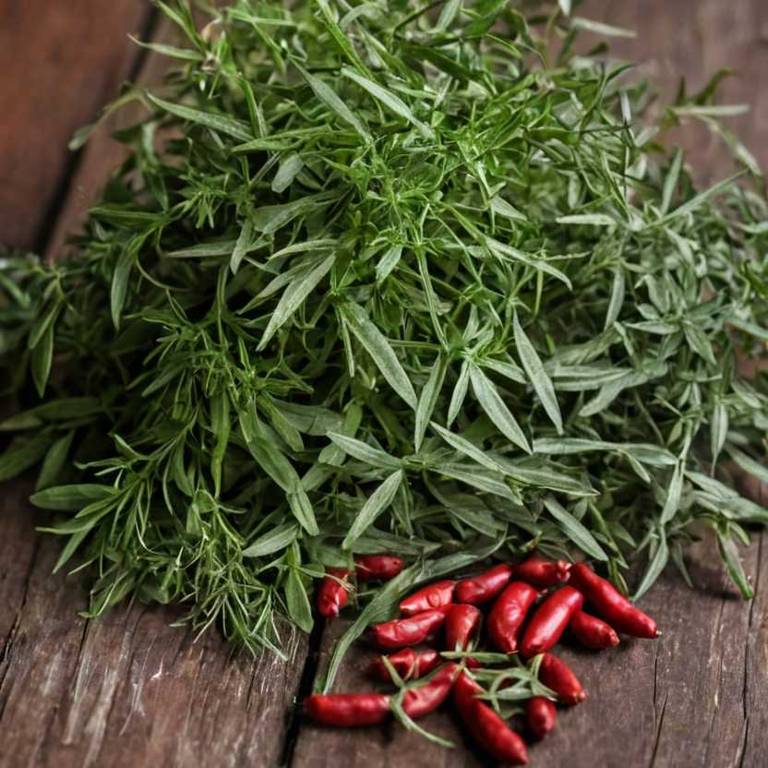Chinese Wolfberry (Lycium chinense)
Chinese Wolfberry (Lycium chinense) is a member of the Solanaceae family, native to China, Central Asia, and Eastern Himalayas. Traditionally, its fruits, leaves, and bark have been used for decoctions, infusions, and powders.
This herb is particularly valued for its tonic, anti-inflammatory, and sedative actions, and has a long history of use in traditional chinese medicine, korean traditional medicine, and japanese kampo medicine.

Quick Facts / Key Information
| Common Name | Chinese Wolfberry |
|---|---|
| Scientific Name | Lycium chinense |
| Plant Family | Solanaceae |
| Genus | Lycium |
| Species | chinense |
| Native Range | China, Central Asia, Eastern Himalayas |
| Plant Parts Used | Fruits, Leaves, Bark |
| Primary Medicinal Actions | Tonic, Anti-Inflammatory, Sedative |
| Primary Traditional Systems | Traditional Chinese Medicine, Korean Traditional Medicine, Japanese Kampo Medicine |
| Historical Preparation Methods | Decoction, Infusion, Powder |
Botanical Identity
- Scientific Name
- Lycium chinense
- Common Name
- Chinese Wolfberry
- Synonyms / Alternative Names
- Goji Berry, Boxthorn, Goji Berry Plant
- Plant Family
- Solanaceae
- Genus
- Lycium
Botanical Description
- Growth Habit
- Perennial herbaceous plant.
- Height
- It typically grows to a height of 1 to 2 meters.
- Leaves
- Ovate leaves with upper surface glaucous green and lower surface pale white, bearing distinct stomatal bands along the midrib.
- Flowers
- Raceme of yellow-orange flowers with five petals and five sepals, actinomorphic symmetry, lacking distinct markings or specialized structures.
- Stems
- Cylindrical, woody, ascending stems with opposite branching, covered in short, pubescent hairs, bearing opposite, sparsely arranged leaves.
Traditional Uses / Historical Use
Traditional Systems
- Traditional Chinese Medicine
- Korean Traditional Medicine
- Japanese Kampo Medicine
- Tibetan Medicine
Historical Preparation Methods
- Decoction
- Infusion
- Powder
- Tincture
Medicinal Actions
- Tonic
- Historically regarded as a calming tonic, for long-term use contexts.
- Anti-inflammatory
- Commonly referenced as a gentle anti-inflammatory, in topical or internal use contexts.
- Sedative
- Traditionally described as a mild sedative, in calming-focused applications.
- Diuretic
- In herbal texts, considered a cooling diuretic, in cleansing-oriented uses.
Active Compounds
- Flavonoid
- A chemical class commonly identified in plant tissues, especially flowers and leaves.
- Phenolic Acid
- Simple phenolic molecules widely distributed across plant tissues.
- Tannin
- A group of compounds frequently present in plant tissues exposed to herbivory.
- Glycoside
- Naturally occurring metabolites distributed across many plant species.
Modern Research Overview
This section is reserved for future summaries of scientific research related to this plant. As additional verified sources are reviewed, relevant study information will be added here.
Safety & Contraindications
- General Precautions
- General precautions have been noted regarding the use of this herb.
- Contraindications
- The use of this herb has been associated with reported contraindications in some situations.
- Allergies
- Information regarding allergic responses to this herb is limited.
- Drug Interactions
- The potential for interactions with prescription medications has not been extensively studied.
- Toxicity
- Toxic effects associated with this herb have not been well documented.
- Pregnancy & Breastfeeding
- There is insufficient evidence to determine the safety of this herb during pregnancy or breastfeeding.
Preparation & Usage Methods
- Infusion
- Plant material is steeped in hot water to extract water-soluble compounds.
- Decoction
- Plant parts are gently boiled in water to release soluble constituents.
- Poultice
- A topical preparation made by applying softened plant material externally.
- Powder
- Plant parts are dried and mechanically reduced to a powdered form.
- Tincture
- A preparation involving soaking plant parts in alcohol for extended extraction.
Growing, Harvesting & Storage
Growing / Cultivation
- Soil
- Prefers loamy soil with well-drained conditions. Typically grows best in organically rich soils.
- Sunlight
- Thrives in partial sun. Tolerates full sun to partial shade.
- Watering
- Prefers well-balanced moisture levels. Tolerates periodic dry conditions.
Medical Disclaimer
The information provided on this page is for educational and informational purposes only. It is not intended to diagnose, treat, cure, or prevent any medical condition. Always consult a qualified healthcare professional before using any herb for medicinal purposes.